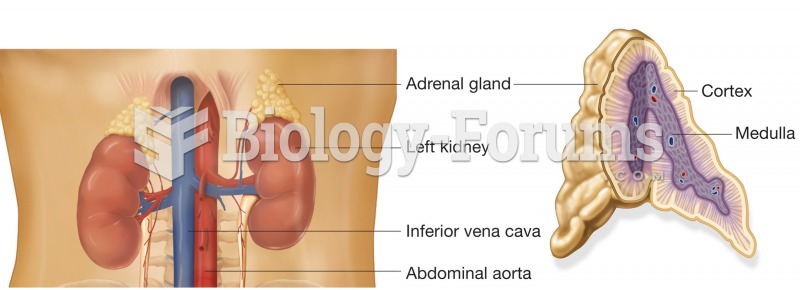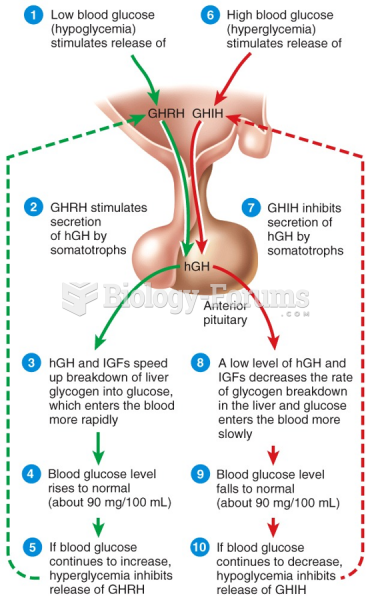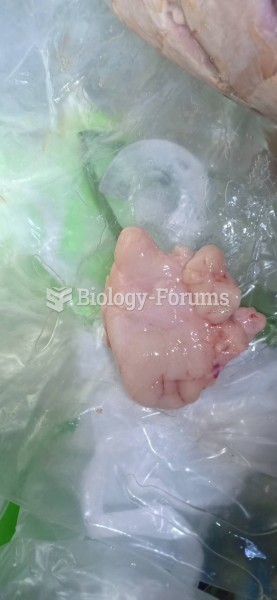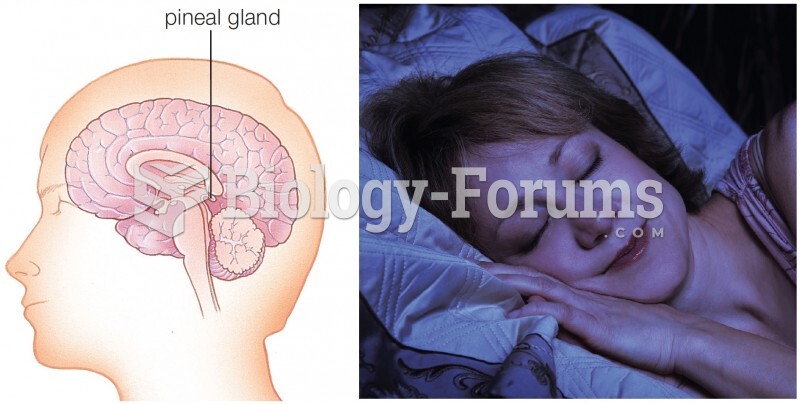|
|
|
More than 34,000 trademarked medication names and more than 10,000 generic medication names are in use in the United States.
People with alcoholism are at a much greater risk of malnutrition than are other people and usually exhibit low levels of most vitamins (especially folic acid). This is because alcohol often takes the place of 50% of their daily intake of calories, with little nutritional value contained in it.
Eat fiber! A diet high in fiber can help lower cholesterol levels by as much as 10%.
No drugs are available to relieve parathyroid disease. Parathyroid disease is caused by a parathyroid tumor, and it needs to be removed by surgery.
The people with the highest levels of LDL are Mexican American males and non-Hispanic black females.







